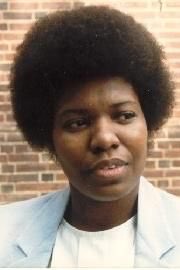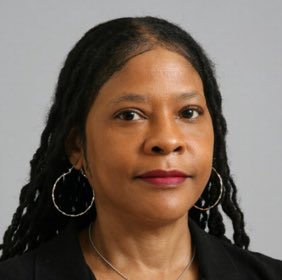Meet Professor Barbara Williams, the first Black American woman to earn a PhD in astronomy/astrophysics. She earned her PhD in 1981 from University of Maryland. She retired from doing radio astronomy in University of Delaware’s Dept of Physics a few years ago. #BlackandSTEM
Occasionally Professor Williams is mistaken for another Professor Williams — Reva K. Williams of U of Toledo, the first Black American woman to earn a PhD in *theoretical* astrophysics. She earned her PhD in 1990 from Indiana University. #BlackandSTEM
Between the 2 Dr. Williams another Black woman earned a PhD in astronomy/astrophysics, the first computational astrophysicist: Dr. Mercedes Richards. Dr. Richards was prob the first Black woman to earn a PhD in astronomy in Canada (U of Toronto, 1986) & was a prof at Penn State.
I highly recommend perusing @Aawip_com for more incredible Black women physicists and astronomers and if you’re curious to see the timeline of who earned degrees when. It is the most authoritative source on the topic! #BlackandSTEM http://aawip.com"> http://aawip.com
Professor Richards may also have been the first (Black) West Indian woman to earn a PhD in physics or astronomy. I am not sure but it seems highly likely.
I also think The Mercedes Richards is a great name for the next space telescope @STROBEXastro :-)
Another point of confusion is "what is the difference between an astronomer and an astrophysicist" and my honest answer is that there isn& #39;t really one, but to an extent the connotation of "astronomer" is someone who does observations or works with data.
I would say that every astronomer is also an astrophysicist but maybe not every astrophysicist is an astronomer. Anyway, the point is, trying to divide people into categories of "astronomer" and "astrophysicist" is not really sensible.
I’d like to add that being the first or among the first of Black women to do anything is an extraordinary achievement, but also it is better when there is a cohort. My personal experience with barrier breaking is that it is actually extremely personally painful.
I think it can be easy to get caught up in being “the first” but I would have been happy to have a cohort of Black women in theoretical cosmology to come up with, really. And I would have been happy to have some particle theorists who were still active researchers to mentor me.
I think it is both important to celebrate firsts (and get them right!) and also to recognize that being #3 or #10 is often not much easier than being #1 and the achievement is not less if you are not technically the first.
I hope what people took away from Hidden Figures is that breaking barriers is really difficult, emotionally and physically grueling work, and not simply that 60 years later someone might make a movie about you. You gotta live those experiences too!!

 Read on Twitter
Read on Twitter




